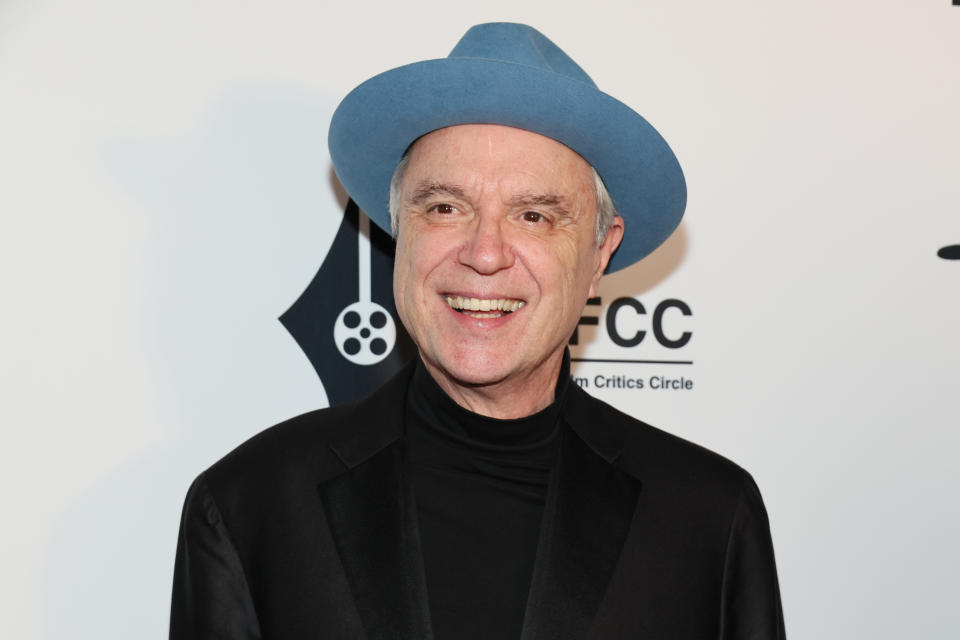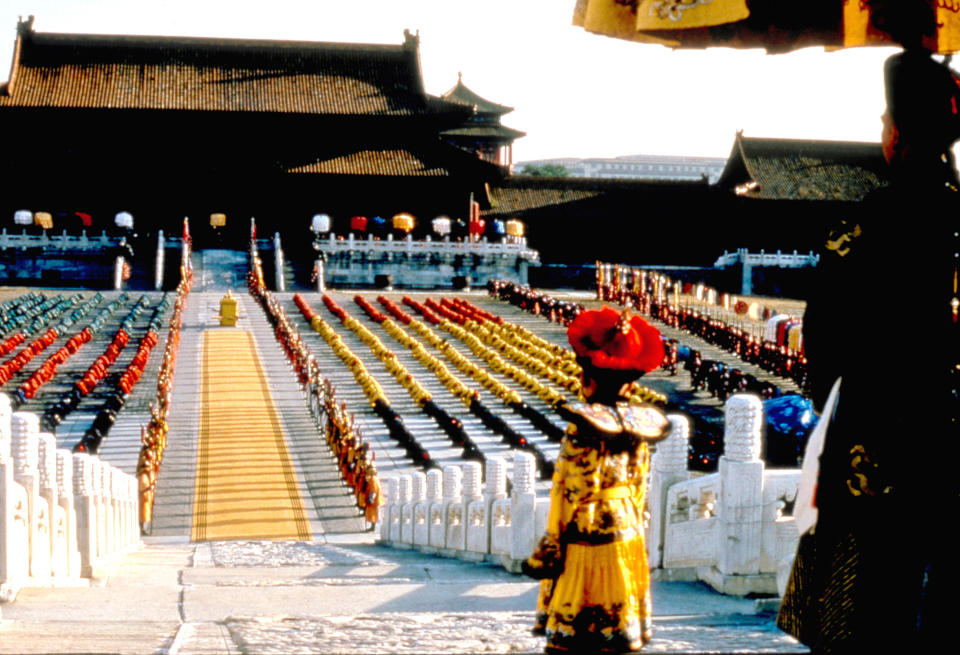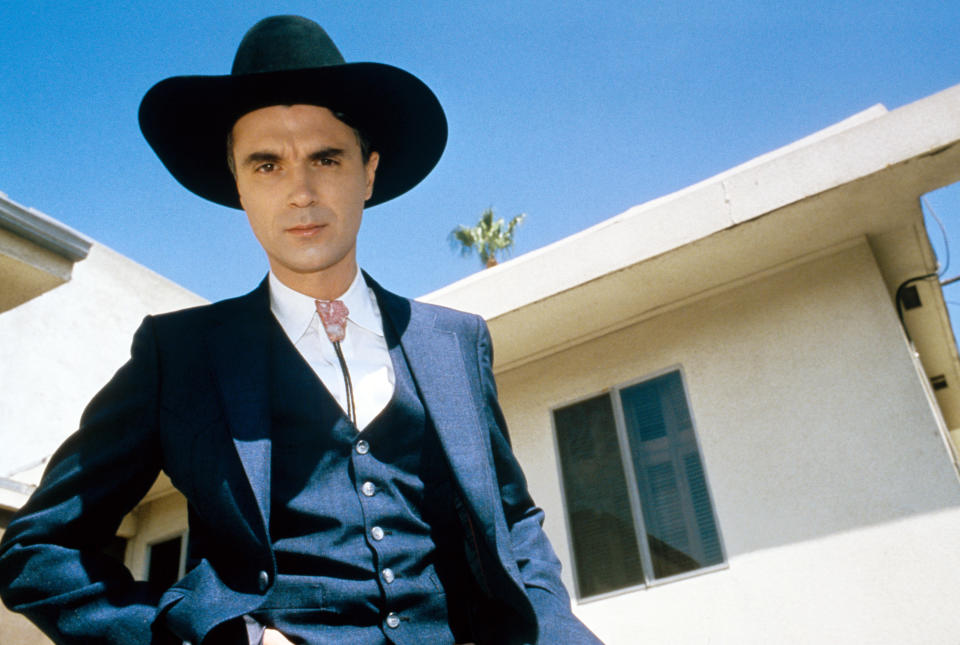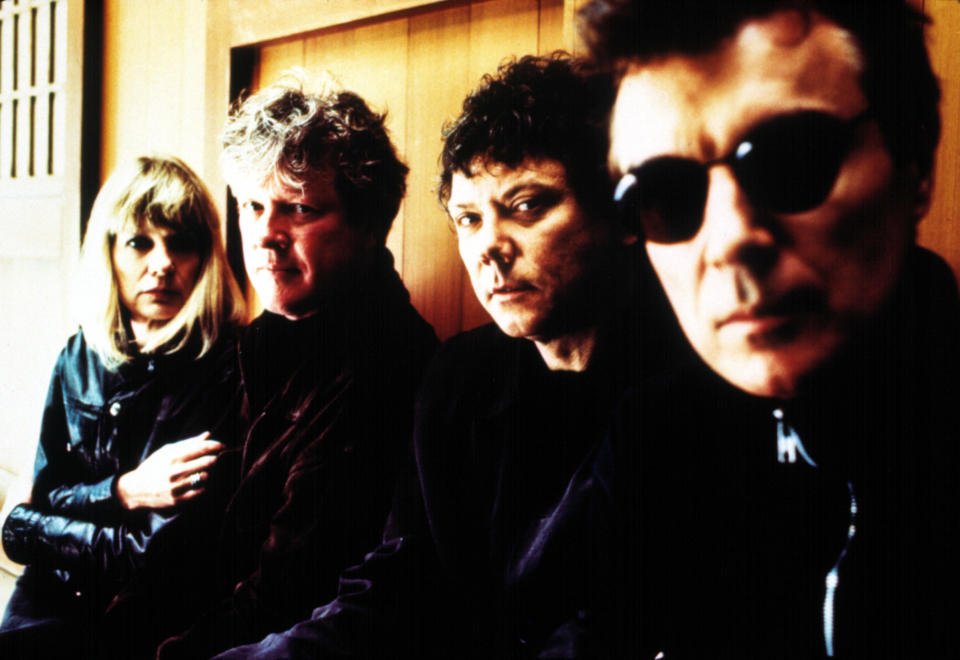‘Everything Everywhere All At Once’ Songsmith David Byrne On Returning To Oscars After 35 Years & Whether There Will Ever Be A Talking Heads Reunion – Crew Call Podcast

David Byrne knows where he’s going and he knows where he’s been, and the former Talking Heads band leader and near EGOT winner is on his way to the Oscars again, 35 years after taking home the original score Academy Award for Bernardo Bertolucci’s The Last Emperor (which he shared with Ryuichi Sakamoto and Cong Su) with a song nomination for “This Is a Life” from A24’s 11x Oscar nominated Everything Everywhere All at Once which he co-wrote with the pic’s composers Son Lux and Mitski. If Byrne wins a second Oscar next Sunday, it doesn’t bring him closer to an EGOT; he needs an Emmy win to do that after two Grammys and a special Tony award for his Broadway showstopper American Utopia.
The last time Byrne was at the Oscars in 1988 it was the year when Talking Heads released their final album, Naked, before disbanding in 1991. They group came together in 2002 for a performance at their induction in the Rock and Roll Hall of Fame performing their hits “Life During Wartime”, “Psycho Killer”, and “Burning Down the House” — never to reunite again.
More from Deadline
In a wide ranging interview with Crew Call, which you can listen to below, Byrne downloads us on everything, everywhere all at once:
Here’s some highlights:

What he loved about Everything Everywhere All at Once which led to writing the end credits song with Son Lux and Mitski:
“As whacky as the movie is, it actually has a lot of heart…It’s about forgiveness, and redemption, and this family kind of coming back together that was squabbling all the time, people that you wouldn’t expect to get together are actually coming together, and making amends. And I said, that’s what the song needs to pick up on that tone, rather than the kind of craziness. The craziness is what everybody’s going to have in the front of their heads when they’re watching this movie, but what really holds it together, especially at the end, is this kind of very emotional core that it builds towards…The song has to put a pin in that.”
How he writes his ditties:
“I’ll usually do it on guitar, or ukulele, or a little tiny guitar…I’ll record it on a voice memo thing on my phone, and just write down, okay, what did I play? What chords did I play there? How’d the melody go? And I’ll record like that.”
On winning Best Score at the Oscars for Bernardo Bertolucci’s The Last Emperor in 1988 with Cong Su and Ryichi Sakamoto:
“It was surreal…the people up for scoring were John Williams, and you know, these incredible soundtrack people, that I just thought, come on, we don’t have a hope.”

On working with Bertolucci on The Last Emperor:
“There was a bit of trial and error in the beginning. I did a bunch of demos of different sorts, and would send them to him and the producers and say, ‘How do you like this direction? How do you like that direction?’…They wanted to be very careful not to have it be, like, some fake Chinese music, or, like, orchestral music with little Chinese touches in it. They sent me when they were shooting, they picked up all these cassettes of contemporary and traditional Chinese music.”
“So, I had this whole stack of cassettes that I was listening to, which was really enlightening. This was before the kind of Chinese economic miracle, before they kind of opened up a bit. It was all these different kinds of music that were being done there. You couldn’t generalize about any of it. So, I just said, ‘Oh my God, okay it could be anything, and they’re doing all this.’ There’s not one particular kind of Chinese music.”

On making his feature directorial debut with the 1986 Talking Heads mocumentary True Stories from Warner Bros:
“It was produced by a guy named Ed Pressman, who just passed away…He was very generous. He said, ‘Yeah, well, we’ll do this’ and from him being on board, Warner Brothers said, ‘Okay, okay, you got a real producer now, we’ll do it.'”
“I was more interested in these various odd characters, musical numbers, kind of the visual elements that would give you an impression of this place, and where parts of the United States were at this particular time and place, and I got help from different people. Jonathan Demme came in, and looked at — I’d been doing storyboards, and had them pinned all over the wall of my house. I remember, he said, ‘David, I think you need, what people referred to as a clock,’ which didn’t mean an actual clock. It meant that you have to have a sense that you’re going somewhere. So, I said, ‘Yeah, there’s going to be this talent show at the end of the movie, and everybody’s getting ready for that.'”
Why the time is right again for his Imelda Marcos musical Here Lies Love on Broadway this summer:

“The story is about this woman who comes from a poor background, but she’s very beautiful, and she marries an up-and-coming politician, who eventually becomes president. At first, they’re very well-loved, and they even keep their campaign promises of building schools, and highways, and all the kind of things that are needed. And then, as we’ve seen happen, they get a little power-hungry, and they eventually — Ferdinand Marcos declares martial law, which means that he can muzzle the press.”
“The country, the whole country’s kind of in, you know, virtual lockdown. So, then they’re sequestering money and there’s killings, and explosions, and democracy is basically over, and after a number of years of that, they kind of make the mistake of killing Ferdinand’s political rival, who was exiled to the US, and decided to come back and kind of see if he could bring back democracy to the Philippines. They kill him right away, and that’s the last straw for the people. So, within a couple of years after that, there are mass demonstrations, and the Marcoses are peacefully ousted.”
On a Talking Heads reunion:
“No. We’re not going to do it. I think most of those reunions are purely for money…We did it really well, really proud of it, but I don’t feel a need to do it again.”
Best of Deadline
Sign up for Deadline's Newsletter. For the latest news, follow us on Facebook, Twitter, and Instagram.

 Yahoo News
Yahoo News 
